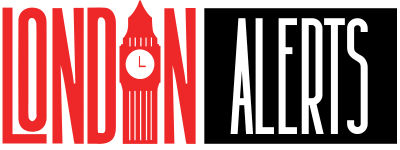
Stay informed with free updates
Simply sign up to the War in Ukraine myFT Digest — delivered directly to your inbox.
The International Criminal Court has issued arrest warrants on war crimes charges against Russian security council secretary Sergei Shoigu and Valery Gerasimov, the top commander of Russia’s invasion force in Ukraine.
Pre-trial judges at The Hague-based ICC found there were reasonable grounds to believe Shoigu, Russia’s former defence minister, and Gerasimov “bear individual criminal responsibility” for a campaign of missile strikes against Ukrainian electric power plants and substations from October 2022 to March 2023, the court said on Tuesday.
This is the third time the ICC has handed out arrest warrants since the start of Russia’s full-scale invasion of Ukraine in 2022. President Vladimir Putin was the first to be indicted last year on charges relating to the alleged abduction of Ukrainian children, together with Maria Lvova-Belova, Russia’s children’s rights ombudsman.
Viktor Sokolov, the former commander of Russia’s Black Sea fleet, and Sergei Kobylash, commander of Russia’s long-range aviation, were indicted in March on similar charges relating to the campaign against Ukrainian energy infrastructure.
President Volodymyr Zelenskyy welcomed the arrest warrants for Shoigu and Gerasimov, saying that Ukrainians hoped to see them “behind bars” for what he called “heinous crimes against civilians”.
“These barbaric missile and drone strikes continue to kill people and inflict damage across Ukraine,” Zelenskyy said. “Every criminal involved in the planning and execution of these strikes must know that justice will be served.”
Ukraine’s prosecutor-general Andriy Kostin said the warrants marked a “significant step towards full accountability for the aggressor.”
The Kremlin, which has dismissed the previous ICC charges, did not immediately comment on the indictment.
Russia’s deadly aerial bombardment campaign using cruise missiles and Iranian-supplied Shahed drones in the winter of 2022-23 targeted the country’s electrical distribution grid. The strikes plunged the Ukrainian capital of Kyiv and other cities into darkness for stretches that lasted many days in some districts amid freezing temperatures. The attacks also knocked out some heating and water lines.
The ICC’s judges found that “there are reasonable grounds to believe that the alleged strikes were directed against civilian objects” — which would constitute a war crime.
The damage was extensive but some of it was repaired relatively easily, according to Ukrainian and western officials and experts who spoke to the Financial Times.
But Russia’s latest aerial barrages that began in March are zeroing in on thermal and hydroelectric power plants, which those officials and experts said would be much harder and more expensive to fix, rebuild or replace.
Zelenskyy said earlier this month that Russia had destroyed half of his country’s electricity generation capacity since the winter.
“As a result of the strikes of Russian missiles and drones, 9 gigawatts of capacity have already been destroyed. The peak of electricity consumption last winter was 18 gigawatts. So half now doesn’t exist,” he said.
The country faces such severe shortages of power that rolling emergency outages have been imposed and government officials are warning Ukrainians to prepare for a long, dark winter with perhaps less than six hours of electricity per day.
Putin appointed Shoigu as security council secretary in an unexpected reshuffle in May under which Andrei Belousov, a statist technocrat with no military experience, became defence minister.
Several of Shoigu’s top allies have been arrested or dismissed from the ministry in the past two months, indicating that the Kremlin was unhappy with his leadership.
Shoigu’s new responsibilities include overseeing the Federal Service for Military-Technical Cooperation, an agency in charge of military hardware transfers between Russia and its clients in the arms trade.
Putin has limited his international travel to countries that are not party to the Rome Statute, the ICC’s founding document, since his indictment.
Last year, he skipped a summit of the Brics group of nations in Johannesburg “by mutual agreement” to avoid a situation in which South Africa, a member of the ICC, would have been legally obliged to arrest him.




